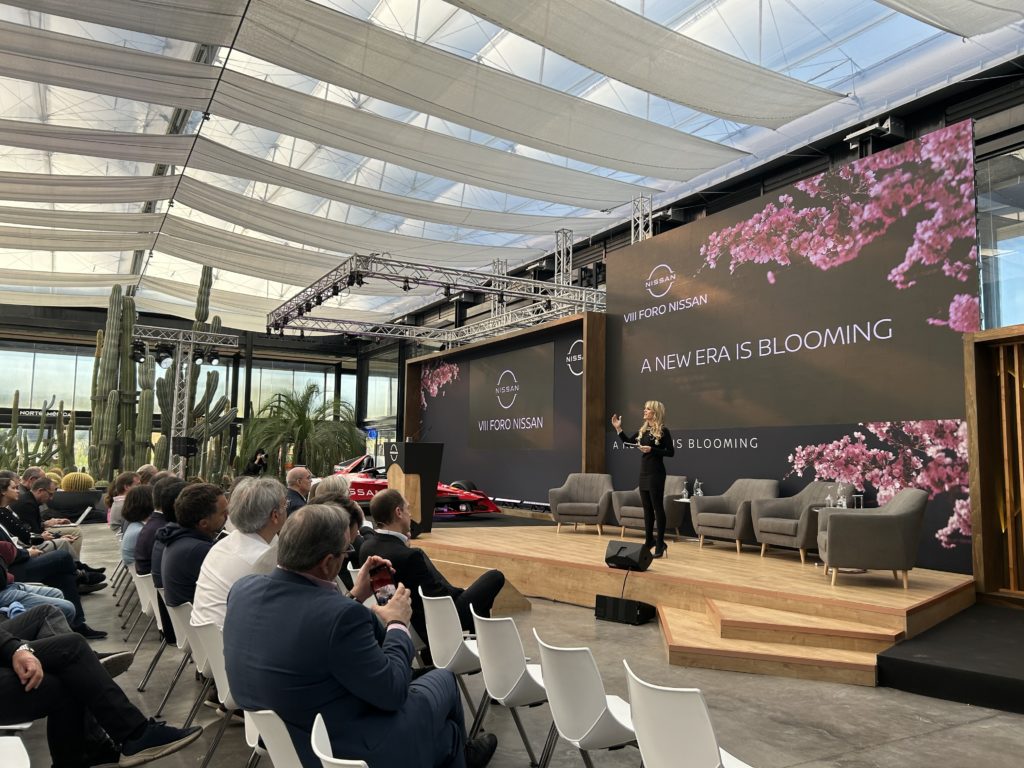VIII Forum Nissan
The concept of an event is so broad that it’s hard to give it an exact definition or make an exhaustive list of its typologies. To some extent, any activity involving people is an event. However, among all this great variety of events, those arranged by or for companies are classified as corporate. But what could we add beyond this vague statement? In this article, let’s have a closer look at the main types of corporate events, their characteristics, and peculiarities.
Congresses, Conferences, and Conventions
These are normally organized by/for one or several companies, and have a clear professional and technical nature. They offer space for presentations, talks and networking that enable a deeper understanding of a topic and showcasing of the latest achievements within the industry. Conventions, perhaps, are the only exception as they tend to be an nternal corporate format. However, congresses and conferences tend to be more sector-specific.
Their duration can vary from one day to a whole week. And the number of attendees is usually quite high. Therefore, in terms of organization, materials and personnel logistics, production, and general deployment of resources, this type of corporate event is the most complex and demanding.
In terms of creativity, these events require ideas for team building dynamics and professional and leisure activities, rather than conceptual thinking.
And within this typology, we could also highlight award-giving ceremonies. They cand be both part of a congress or convention, or sometimes be organized as independent events. They are usually focused on strengthening professional relationships or paying a tribute someone's professional career, often in a relaxed atmosphere with a touch of humor.
Grand Openings and Inaugurations
Normally, it’s a presentation of a company’s or it brands’ physical space. From new headquarters to a store or a pop-up. The main peculiarity here is the event’s exclusivity, that will determine the number of attendees.
And speaking of them, there are two main groups that are usually invited and very welcome at these types of events, media and influencers. Both groups are necessary to enhance the impact and reach a greater scope of final customers. The media are normally invited in a traditional way via email or call, or by sending a good-old press kit. However, in case of influencers, this kind of modern aristocracy, the usual practice is to outsource the relationship with them to a special company. Or sometimes, there’s even a dedicated person in the team working on that full time, as this type of audience requires a more personal attention.
In terms of format, these events usually combine a photocall and a cocktail. They can also include a DJ set or an exclusive mini-concert from a guest star. Nonetheless, more serious formats like press conferences still work very well for more official and formal cases.
4YFN 2023 Edition
Product Launches and Presentations
Here things can get a little tricky. Product launches and presentations can both adopt the form of an opening, if it’s exclusive enough, or of a conference (even online), if you’re targeting a more general audience. In other words, the presentation format will depend on the type of the product you’re presenting. There’s huge difference between presenting an exclusive jewelry line and, for instance, new products by a certain technological brand that we witness every fall.
So, why do we treat them as a different category? Because usually, these presentations and launches require an extra dose of creativity. But once again, it is very difficult to define what types of creativity might be required. Depending on the product, the range of ideas can vary from the uniqueness of the venue chosen for the occasion (a century-old theater or an abandoned factory, etc.), to the activations offered during the event, such as a conceptual runway, a multisensory experience, etc.
And as a subtype, we could also mention road shows. They work very well for presenting products to a wider scope of cutomers with a greater geographical reach.
Educational and Training Events
Last but not least among the main types of corporate events are seminars and workshops. The difference between them is that the former are more focused on theory for a bigger number of attendees, while the latter serve for practicing knowledge or skills in smaller groups.
Perhaps, the most interesting thing to highlight here is that these educational events are increasingly used not only internally for employees, but also as a very effective commercial tool. They provide a lot of added value in the form of knowledge and skills in different areas, from gastro to technological skills, and have a very positive impact on the image of the brand that offers them.






